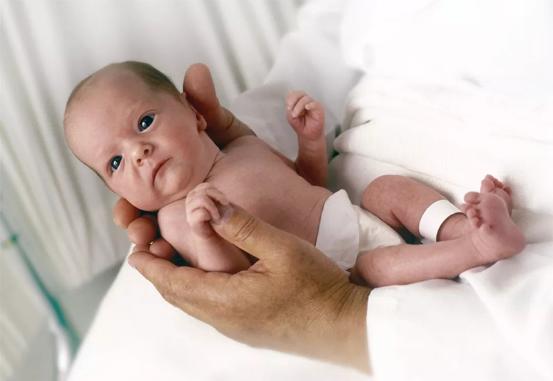For every pregnant mother, the most feared thing about giving birth to a child is that her baby will be born prematurely, because premature babies not only mean that they are born insufficient, and it is even difficult for children born too early to survive in the outside world. However, for the survival of premature babies, we often have the saying that "seven live and eight do not live", that is, a seven-month fetus is better to survive than an eight-month fetus.

There are indeed such examples around the editor, the child of the college classmate is an eight-month-old premature baby, who stayed in the incubator for two weeks before various treatments survived. The child of the special friend is a premature baby who is more than seven months old, and the situation after birth is very good, and there is almost no big problem. Is it true that such "seven lives and eight do not live"? Is there any scientific basis for this statement?
Although it is true that we can encounter such examples around us, this does not prove that premature babies are better off surviving at seven months than at eight months, and in fact there is no such scientific basis to support it. As for the folk will have such a statement, Xiaobian will think that it is a superficial situation caused by "survivor bias", which is mainly based on personal subjective experience, and has no scientific theoretical basis.
Because the fetus is growing continuously in the mother's womb, every time the mother's stomach is carried one more day, it can get one more day of growth, and for the fetus that is not full-term, the mother's uterus is the best place for growth and development. Therefore, from the perspective of the conditions of fetal growth and development, the development of eight-month-old premature babies is bound to be much better than that of seven months old.
In our pregnancy weeks, the seven-month-old fetus is only 28 weeks, and even 30 weeks has not yet arrived, when the fetus is still in the development stage in the mother's womb, and the various organ systems of the body have not yet matured, especially the most critical respiratory and digestive systems. Therefore, after such a small fetus is born, it is easy to have various postpartum and develop dangers.
For the eight-month-old fetus, it has reached 32 weeks, the fetus has been relatively mature in the development of various organ systems in the body, although there is still a period of time before the 36-week full-term baby, but there is already a strong ability to survive after birth. And in the follow-up care after survival, there are not too many problems, and there are relatively few complications, so do not blindly believe in folk sayings.
But whether it is seven months old or eight months old, as long as the fetus is born 37 weeks ago, we call it premature birth, and the fetus born prematurely must face many survival problems, especially the children who are extremely premature and early premature. Of course, our current medical technology has been quite developed, especially in large cities and specialized hospitals have a relatively complete medical level.
As long as the child has good medical conditions after birth, the survival rate is relatively high in the incubator for continued treatment and development, and in general, the larger the gestational week of the child's birth, the easier it is to survive and better treated. But what we need to understand is that children born prematurely need to spend a lot of money and material resources to maintain the child's life, and this is also a relatively large burden for ordinary families.
No pregnant mother wants her child to be born prematurely, so we need to pay attention to the prevention of premature babies in our pregnancy life. During pregnancy, we should pay attention to our own diet and nutrient intake, do not contact various tobacco and alcohol, do a good job of obstetric examination every month, prevent and control various high-risk diseases during pregnancy, and maintain the health of the body.
If you encounter signs of premature birth, you must not give up, go to the hospital in time to do a good job of fetal protection, as far as possible to let the child stay in their womb for a period of time, so that even if the end is to give birth early, the survival rate of the child can be higher.
Important note: For the folk "seven live eight not live" premature baby saying is unscientific, from the perspective of fetal development, more than a month will have better development, there are better living conditions after birth. Although our current medical technology can greatly improve the survival rate of premature babies, as a pregnant mother, we must pay attention to our own pregnancy life and prevent the occurrence of premature babies.
Today's topic: During pregnancy, do you have any scientific introduction to the experience of fetal maintenance? Welcome to leave a message to discuss.